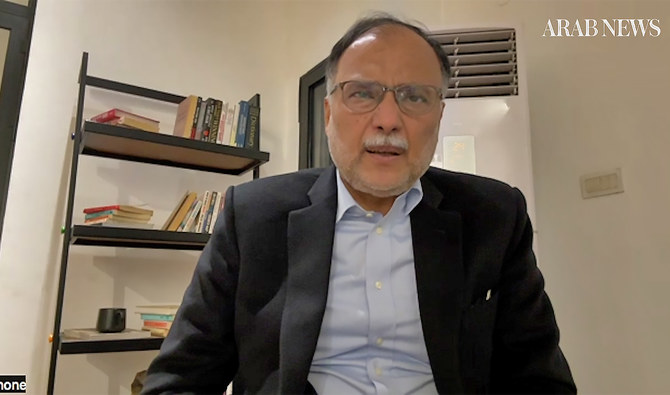ISLAMABAD: The International Monetary Fund (IMF) should realize that Pakistan needs “more understanding, not more harsh conditionalities” after having suffered $30 billion losses due to last year’s flood, its planning minister has said, adding Islamabad is paying an economic cost for a delay in finalization of an IMF review of the country’s $7 billion loan program.
In addition to the economic losses, the devastating floods claimed more than 1,700 lives and affected 33 million people in the South Asian country, already witnessing decades-high inflation and fast depreciating national currency.
Amid the economic crisis, Pakistan’s foreign exchange reserves have depleted to $3 billion — barely enough to cover 18 days of imports — leading to fears of a default.
To mitigate the situation, Islamabad is currently holding talks with an IMF mission, which arrived in the country last month, to discuss the resumption of the $7 billion loan program, stalled since November.
“The IMF program which should have been finalized earlier has taken a little longer and I hope that IMF also realizes that by delaying the finalization of the program or review of the program, markets get more uncertainty at an economic cost,” Planning Minister Ahsan Iqbal told Arab News in an exclusive interview on Saturday.
“After Pakistan being subjected to $30 billion loss due to climate change, Pakistan needs more understanding, not more harsh conditionalities.”
A successful review of the program will result in the release of more than $1 billion to Islamabad, while Iqbal said there was no chance of a default as the South Asian country had strong fundamentals that would never let it go bankrupt.
“I am very hopeful that the IMF program will be finalized and as soon as the review is finalized, we will see that all the multilateral inflows will start coming in which have been held up due to uncertainty about program,” he said.
“We should be able to turn around the situation in the next couple of months or maybe a year.”
Just like climate disaster, the government was facing an economic disaster for no fault of it, but because of “someone else’s wrongdoings,” according to Iqbal.
The Pakistani planning ministry has worked at the 5E framework which rallies around exports, e-commerce, energy, environment and education.
“The government is looking at a more comprehensive reform package that will not only fix our immediate problems, but also provide us a solid foundation for sustainable and fast growth in the future,” the minister said.
On the question of a surge in militant attacks in Pakistan, Iqbal said a small group of militants could not dictate Pakistan and the government had resolved to defeat militants through a comprehensive internal security policy.
“The national action internal security policy envisages many non-kinetic measures so that we can also make and take more preventive measures in the future for such groups to find no support in the society,” he said.
“We will continue our vigilance and we will continue our operations to eliminate any trace of these extremist elements which enter Pakistan from Afghanistan.”
The South Asian country witnessed 254 militant attacks last year, according to the Islamabad-based Pak Institute for Peace Studies think tank, with most of them linked to the Pakistani Taliban, or the Tehreek-e-Taliban Pakistan (TTP), that unilaterally ended a cease-fire with the government in November. Pakistani officials have previously vowed to show no leniency to militants and fight them out.
On the possibility of talks with former prime minister Imran Khan who has been agitating against the government, Iqbal said the coalition government always asked Khan to hold talks with it and take the path of consensus-building, but unfortunately, he did not do it.
“He is a lonely voice standing on the one side, the rest of all democratic parties on the other side and they are realizing that,” the minister added.
















